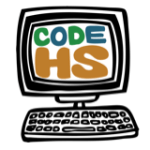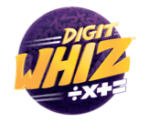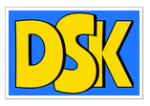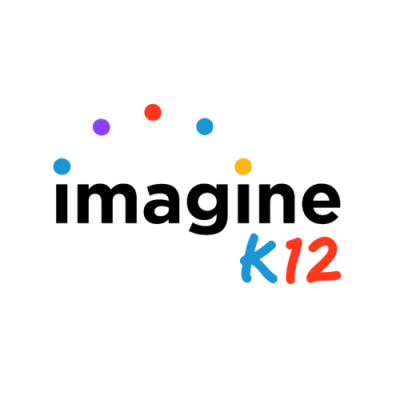The number of startup accelerators has grown exponentially over the last few years. There are now over 100 of them scattered throughout the U.S. — a fairly dramatic increase from 2007, when there were just about four, according to Y Combinator’s estimates. Today, when it seems that every vertical — mobile, gaming, hardware, etc. — has its own accelerator, education remains somewhat of an outlier.
That’s why, after encouragement from YC founder Paul Graham, former Yahoo and Google execs Tim Brady, Alan Louie and Geoff Ralston created Imagine K12 in 2011 — to provide a network of support for the next generation of young edtech companies. In Mike’s coverage of the accelerator’s launch, he called it the “Y Combinator for education startups.” Given Graham’s early moral support and similarities between the models, the comparison makes a lot of sense. At the same time, given what Y Combinator has become over the last 5 years (and the fact that it now launches 75 startups at a time), it’s an ambitious analogy.
Yet, on Friday, Imagine K12 launched its third cohort of edtech startups at its own Demo Day in Palo Alto, and while it’s still not quite at YC’s level, the accelerator has already come a long way. With each batch, its startups show more promise. [For more on the eleven companies from Imagine K12’s third class, see company descriptions below.]
Following the YC and TechStars model, Imagine K12 set out to find promising young startups, offering to support their early coding sessions and product testing with a little seed capital (ranging between $14K to $20K in exchange for an average of 6 percent equity), work space and coaching on everything from accounting to how to pitch investors. Although the founders weren’t initially sure the model would work for education, they received 100 applications for their first class, and things have grown steadily from there.
To be fair, Imagine K12 continues to be a work in progress, as its ratio of teachers-to-engineers among its founding teams still favors the latter, for example. Nonetheless, since its launch last March, the ed-ccelerator experiment has shown some promising results. Of the 19 companies launched in its first two classes, 13 of them have collectively raised over $10 million from angels and VCs, with products created by Imagine K12 grads now in use in over 300K classrooms, reaching over 4 million students.
All in all, as accelerators become their own industry segment and the space gets more and more crowded, “vertical” accelerators (and even corporate accelerators, which offer some of the same benefits) may win out over those with broader (or more horizontal) approaches to business incubation. Essentially, the more effective an accelerator is in helping startups solve the problems specific to its industry, the more valuable they become.
That’s why Imagine K12 has turned its focus to finding more (and better) opportunities for its founders to connect with the right education customers — and teachers. After all, access to industry contacts, like institutions, districts and administrators, can be tough for young and first-time entrepreneurs (especially the technical among them) to forge on their own.
As the education industry is transformed by web and mobile technology and digital distribution channels, edtech startups are finding they have more latitude in how they sell to their customers. Startups are now able to more effectively (and directly) target teachers, instead of having to deal exclusively with the more painful, traditional purchasing channels, like, ahem, districts.
To give its founders greater access to teachers, Imagine K12 launched an Educator Day, which treats teachers to product demos, and gives the crowd (typically several hundred) an opportunity to interact with startups, offer feedback, ask questions and discover potentially useful tech to use in their classrooms.
On top of that, inspired by the Entrepreneur-In-Residence (EIR) positions offered by many venture capital firms, the accelerator created its own residency program for teachers, allowing startups to leverage the on-site expertise of a real, live practicing teacher. Their “TIRs” hold office hours, help evaluate applicants, and have the opportunity to assist startups in shaping their products, ensuring that those products turn into something teachers would actually use.
The accelerator’s increasingly teacher-centric model has been a boon for startups like ClassDojo and Educreations, which are arguably two its most successful incubations thus far. ClassDojo, for one, recently raised $1.5 million from an impressive list of investors (like Paul Graham, Ron Conway, Jeff Clavier, Flixter CEO Joe Greenstein, OpenFeint Founder Jason Citron, Start Fund, General Catalyst, Lerer Ventures and NewSchools Ventures, to name a few). What’s more, the startup has attracted over 3.5 million teachers and students in more than 30 countries by giving teachers a fun, easy way to manage their classrooms and keep students on-task.
Like ClassDojo, Educreations is using mobile technology to make teachers’ lives less painful by giving them an easy way to create, narrate and record video whiteboard tutorials on the web and mobile devices. With its whiteboard now used in over 12,000 schools in 117 countries, the Imagine K12 grad raised $2.2 million from Accel, NewSchools and a flock of angel investors in August.
With each cohort, the Imagine K12 founders are getting a better grasp on how to help founders build successful companies in a rapidly transforming and tricky industry, and its startups are showing more promise as a result.
On Friday, the accelerator launched its third batch of startups, with founders pitching their businesses to investors at Graduation, er, Demo Day — the program’s culminating event. Without further ado, here’s a brief look at the eleven companies to take the stage at Imagine K12’s offices in Palo Alto. [Note: More than a few of the startups are still in beta or private beta and are actively looking for feedback on their products. You can sign up and/or tell ’em what you think on their websites.]
Chalk
 Chalk is on a mission to help teachers reduce the never-ending pain and time-sink of paperwork. To do this, the startup allows teachers and administrators to easily digitize and distribute any document, along with making it easy to fill out forms automatically, make copies, share docs with their contacts, and request information and e-signatures from recipients.
Chalk is on a mission to help teachers reduce the never-ending pain and time-sink of paperwork. To do this, the startup allows teachers and administrators to easily digitize and distribute any document, along with making it easy to fill out forms automatically, make copies, share docs with their contacts, and request information and e-signatures from recipients.
Chalk also tracks and stores every response, enabling teachers to get realtime updates on critical documents without having to worry about losing or misplacing files or manila folders. Streamlining workflow and saving trees means teachers get more green. Environmentally and financially speaking, of course.
Chalk is currently in private beta.
Code HS
 Drawing on the popularity of startups like Codecademy, Treehouse (and many more), Code HS has developed an online program that allows students (and really anyone) to learn the basics of coding — particularly JavaScript. Codin’ ain’t easy and there are already plenty of places for eager, wanna-be-engineers to learn the fundamentals. But rather than taking a purely consumer approach, CodeHS wants to use classrooms as its entry point, giving schools an end-to-end resource for teaching beginner computer science.
Drawing on the popularity of startups like Codecademy, Treehouse (and many more), Code HS has developed an online program that allows students (and really anyone) to learn the basics of coding — particularly JavaScript. Codin’ ain’t easy and there are already plenty of places for eager, wanna-be-engineers to learn the fundamentals. But rather than taking a purely consumer approach, CodeHS wants to use classrooms as its entry point, giving schools an end-to-end resource for teaching beginner computer science.
To do that, through a freemium membership model, the startup provides a curriculum, a library of instructional videos and in-browser programming exercises, along with a support system that gives students access to advice from experts. The goal is to offer CS-class-in-a-box — software that is easy for high schools to integrate and, off-the-shelf-style, doesn’t require teachers to be proficient in computer science to teach it effectively.
Digit Whiz
 Though the technical and quantitative-minded may beg to differ, learning math isn’t exactly a blast, and it can be tough for the many without Einstein-ian calculating abilities. Founder Kasey Brown taught math for 19 years and is well-familiar with how to help remedial math students get up to speed.
Though the technical and quantitative-minded may beg to differ, learning math isn’t exactly a blast, and it can be tough for the many without Einstein-ian calculating abilities. Founder Kasey Brown taught math for 19 years and is well-familiar with how to help remedial math students get up to speed.
To help young students learn foundational math skills, Digit Whiz evaluates students abilities, prescribing games and guides that will help them master basic and pre-algebra skills. The service intends to make it easy for teachers to on-board their classes, get started quickly and track student progress. While Brown developed Digit Whiz with her remedial students in mind, the service offers help to students of every ability — and even parents. In essence, Digit Whiz sounds a lot like the math version of another Imagine K12 startup, NoRedInk, which you can find below.
EdCanvas
![]() Founded by former Microsofties, Edcanvas gives teachers a virtual repository for collecting all of their digital materials — a unified place (canvas) where they can collect and curate lessons and presentations. Both teachers and students can drag and drop multimedia, links or text (YouTube videos, Google links or photos from Dropbox, for example), organizing them into a Pinterest-style educational presentation, complete with annotations. Those “canvasses” can then be shared with teachers and students.
Founded by former Microsofties, Edcanvas gives teachers a virtual repository for collecting all of their digital materials — a unified place (canvas) where they can collect and curate lessons and presentations. Both teachers and students can drag and drop multimedia, links or text (YouTube videos, Google links or photos from Dropbox, for example), organizing them into a Pinterest-style educational presentation, complete with annotations. Those “canvasses” can then be shared with teachers and students.
Tryumph
 Studying can be tedious, boring and something to be suffered through in solitude. Tryumph is on a mission to turn studying into a more social activity, allowing students to learn with friends. The startup’s first app, Drop Some Knowledge (DSK) is a social learning platform that leverages students’ pre-existing social networks to help them learn together about their subject of choice. The idea is to make studying social, competitive and maybe even fun.
Studying can be tedious, boring and something to be suffered through in solitude. Tryumph is on a mission to turn studying into a more social activity, allowing students to learn with friends. The startup’s first app, Drop Some Knowledge (DSK) is a social learning platform that leverages students’ pre-existing social networks to help them learn together about their subject of choice. The idea is to make studying social, competitive and maybe even fun.
NoRedInk
 NoRedInk is the humanities-focused sibling of Digit Whiz. Created by long-time high school English teacher Jeff Scheur, the startup offers an easy way for students (and everyone else) to improve their awful grammar and writing skills. NoRedInk’s learning engine generates personalized curricula from students’ interests, creating feedback, tutorials (and even color-coded heat maps) based on students’ preferences and their areas of proficiency.
NoRedInk is the humanities-focused sibling of Digit Whiz. Created by long-time high school English teacher Jeff Scheur, the startup offers an easy way for students (and everyone else) to improve their awful grammar and writing skills. NoRedInk’s learning engine generates personalized curricula from students’ interests, creating feedback, tutorials (and even color-coded heat maps) based on students’ preferences and their areas of proficiency.
The startup won NBC’s $75K Innovation Challenge in September and was featured on the TODAY Show as a result. You can read TC’s in-depth dive into NoRedInk here.
Raise Labs
 Simply put, Raise wants to change the way college scholarships are accessed and distributed. The platform allows students to earn “micro-scholarships” throughout high schools based on their individual achievements in class and overall progress as they get ready for college. On the flip side, Raise gives scholarship providers a better way to track candidates and see who qualifies for achievement-based aid, potentially allocating their scholarships more efficiently and helping a greater number of students achieve their collegiate ambitions. Raise is currently in private beta, and you can sign up on its home page.
Simply put, Raise wants to change the way college scholarships are accessed and distributed. The platform allows students to earn “micro-scholarships” throughout high schools based on their individual achievements in class and overall progress as they get ready for college. On the flip side, Raise gives scholarship providers a better way to track candidates and see who qualifies for achievement-based aid, potentially allocating their scholarships more efficiently and helping a greater number of students achieve their collegiate ambitions. Raise is currently in private beta, and you can sign up on its home page.
Securly
![]() Securly is building “Web Filtering 2.0” for schools. The startup offers a cloud-based web filter that “takes five minutes to set up per district” and costs less than typical enterprise solutions. Securly wants to solve the “over blocking” problem in schools by allowing teachers to safely use Google, YouTube and Wikipedia in the classroom without subjecting them to inappropriate content, videos, search results, and so on. Key to its pitch is the fact that schools can take advantage of this utility quickly without setting up hardware or software, meaning less hassle and lower costs.
Securly is building “Web Filtering 2.0” for schools. The startup offers a cloud-based web filter that “takes five minutes to set up per district” and costs less than typical enterprise solutions. Securly wants to solve the “over blocking” problem in schools by allowing teachers to safely use Google, YouTube and Wikipedia in the classroom without subjecting them to inappropriate content, videos, search results, and so on. Key to its pitch is the fact that schools can take advantage of this utility quickly without setting up hardware or software, meaning less hassle and lower costs.
SmarterCookie
![]() SmarterCookie aims to make it easy for schools, mentors and instructional coaches to use video to support and educate their teachers. Using a phone, laptop camera, or whatever they have, teachers can upload a video of a lesson and share it either privately or with their colleagues. Coaches and schools can then provide time-stamped feedback that is specific and actionable so that teachers can implement that feedback for their next lesson.
SmarterCookie aims to make it easy for schools, mentors and instructional coaches to use video to support and educate their teachers. Using a phone, laptop camera, or whatever they have, teachers can upload a video of a lesson and share it either privately or with their colleagues. Coaches and schools can then provide time-stamped feedback that is specific and actionable so that teachers can implement that feedback for their next lesson.
The more teachers get consistent, targeted feedback, the more effective they become. SmarterCookie takes care of the complexities of private video sharing and feedback channels so that teachers can focus on becoming better, well, teachers.
StudyRoom
 Online classes are all the rage these days and while they make remote learning and continuing education possible, most programs only provide students with solitary or one-to-one learning experiences. StudyRoom creates social networks and communities around online classes, giving students a place to meet their classmates online, collaborate, and study together. By way of a collaborative whiteboard that can be accessed both online and on mobile devices, the startup is hoping to bring study groups and group interaction to online education.
Online classes are all the rage these days and while they make remote learning and continuing education possible, most programs only provide students with solitary or one-to-one learning experiences. StudyRoom creates social networks and communities around online classes, giving students a place to meet their classmates online, collaborate, and study together. By way of a collaborative whiteboard that can be accessed both online and on mobile devices, the startup is hoping to bring study groups and group interaction to online education.
Tioki
 Formerly known as DemoLesson, Tioki is LinkedIn adapted for teachers. The online professional network aims to create a better way for teachers to connect with and learn from other teachers. Part Match.com for mentoring and part networking tool, the startup lets teachers quickly describe themselves and what they’re looking for, then matches them to those that can help answer their questions or offer advice and guidance in all manners of teacher troubles.
Formerly known as DemoLesson, Tioki is LinkedIn adapted for teachers. The online professional network aims to create a better way for teachers to connect with and learn from other teachers. Part Match.com for mentoring and part networking tool, the startup lets teachers quickly describe themselves and what they’re looking for, then matches them to those that can help answer their questions or offer advice and guidance in all manners of teacher troubles.
Beyond that, teachers can create profiles that pull in their relevant links and social profiles, allowing them to share research, show off their accomplishments and link to relevant resources. The goal of which is to help teachers make connections that are actually valuable — and help them to find work, discussions or resources that improve their instruction and potentially their lives.
